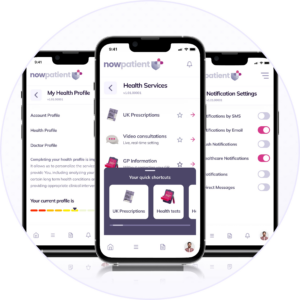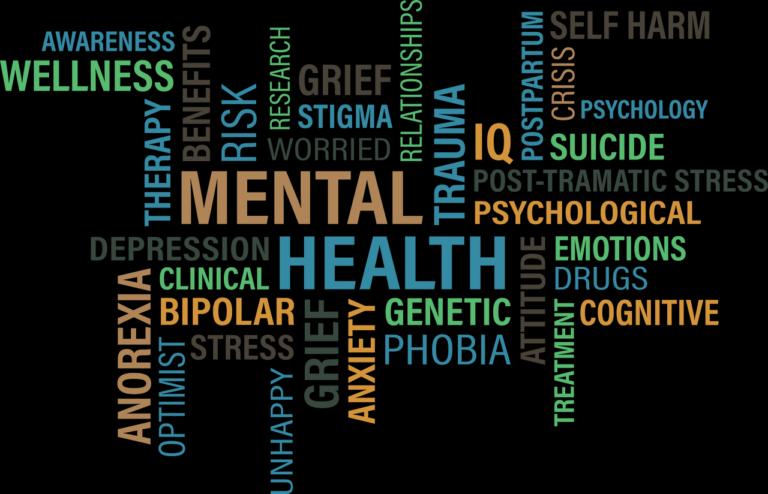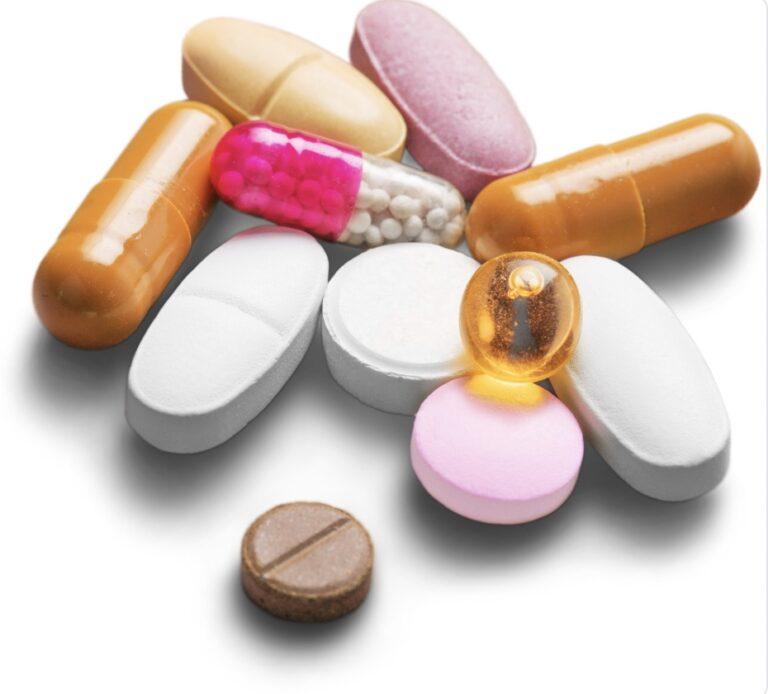The promise of personalised medicine
The promise of personalised medicine is incredible: it can save lives, improve the quality of life for people with long-term conditions, and relieve stress on overburdened healthcare systems. The term ‘personalized medicine’ sometimes referred to as ‘precision medicine is the process of tailoring medical decisions and interventions to an individual person as each patient’s circumstances and conditions are unique, and medical treatments should be too. It extends greater autonomy to patients by focusing on precision and prevention. However, as personalised medicine has taken its first steps in the digital world – in the form of health apps – adoption has not reflected its immense potential. Today, there are more than 300,000 health-related apps available from leading app stores worldwide, a number which has more than doubled in just five years. Supply of these apps continues to grow, as do the sensing and computing capabilities of smartphones and connected technologies like Apple Watches, heart rate monitors and continuous glucose monitors (CGMs).
While smartphones haven’t yet superseded medical devices, their ubiquity and constant proximity to patients make them an invaluable repository of lifestyle and behavioural data. This, along with their processing power, provides the immense potential to improve insights, outcomes, and patient quality of life – all at our fingertips. The potential benefits are particularly clear for patients with long-term conditions, such as type 1 diabetes, who must make constant lifestyle choices which dramatically impact their health. These people cannot realistically consult medical professionals on each everyday decision, but health-tech apps such as NowPatient offer a realistic alternative. So, what’s holding things up? While there is a generally positive attitude toward health apps, the products on the market today are mostly general and sometimes superficial. There are countless apps to improve public health, to help people with their diet, exercise and sleep therapies, and these have value, but there are far fewer apps designed to holistically address specific conditions, which is an area where they could make the most significant difference.
Personalised medicine also refers to the field of Pharmacogenomics, which we will not cover in this blog, but further information is available at NowPatient. Pharmacogenomics utilises information about an individuals genetic makeup, or genome, to choose the most appropriate drugs and doses of those drugs that are most likely to work for that particular individual. This combines how drugs work (pharmacology), with the understanding of the human genome and genetic data (genomic medicine).
The Research
We wanted to explore the role that health apps currently play in people’s lives, both for those living with a long-term condition, type 1 diabetes, and those who aren’t. We conducted online surveys in August 2020 and reached a total of 2,170 adults in the UK who had used a health app before and 244 adults in the UK who live with type 1 diabetes. We asked both groups of participants questions such as: How many times a day do you use an app or website to manage your health? To what extent do you agree that health-tech apps give individuals the freedom to manage their lifestyle and wellness independently? And, has the COVID-19 pandemic made you more or less likely to download a health-tech app
The UK’s digital health habits
Health app usage in the UK
Many of the findings supported our current understanding at NowPatient, but some of the results surprised us. Here’s what we found:
Our research found that the British public was extremely open to using apps as initiatives for health-related decisions. Overall, 83% of respondents reported using a health app at least once a day, with lifestyle-focused apps proving the most popular by far. Diet and exercise apps were the most widespread, with 70% of respondents reporting that they have used them. Just over half, 52%, said that they had used an app to track their workouts, such as Strava. Significant numbers also used apps to track their diet, 40%, and their sleep, 30%.

Attitudes towards health apps
In addition to understanding how common health app usage is, we also wanted to learn more about public opinion towards these apps. Our research found that 86% of individuals who use apps agreed that using personal technology devices such as smartphones and wearables can improve an individual’s health and wellness. Similarly, 76% agreed that introducing health-tech apps into healthcare could improve and alleviate many industry challenges. Adopting apps and other forms of personalised healthcare could relieve the system of long waiting times, increased pressure due to the coronavirus, and the significant backlog of appointments.
Finally, a significant majority, 87%, feel that health-tech apps give individuals the freedom to better manage their lifestyle and wellness independently – yet just 11% of respondents reported using a health app to monitor their own health conditions.
There is a clear appetite for digital health apps and health information technology, which has only increased during the coronavirus pandemic. The National Health Service’s Track and Trace app was downloaded more than 19 million times in its first two months. This coincided with the period in which we were gathering responses to our survey.
Our data shows that the coronavirus pandemic has increased people’s willingness to download a health app. Over one-third of respondents, 37%, reported that they were more likely to download a health app since the start of the pandemic. A further 26% responded that they have become more inclined to use a health-tech app instead of visiting a hospital or general practitioner. This is particularly significant as the NHS continues to face a coronavirus-related backlog, due to both reallocations of resources to combat the virus and patient reluctance to attend non-essential appointments. In addition to the public waiting list of almost four million, the coronavirus is believed to have caused an additional 15 million people to find their appointments on a waiting list.
Many apps involve a privacy trade-off, yet in our research, most people appear to be comfortable with sharing their medical information digitally. Almost three-quarters of respondents, 74%, reported feeling comfortable sharing personal data with a health app. Just one in five said that they found the idea uncomfortable. Over half of the people, 55%, even reported that they would trust a diagnosis provided by a health app, while 34% said they would not. The majority of respondents, 85%, were also generally willing to share personal data from a health app with their GP, with only 10% expressing concerns over this idea.
Mobile phone use is prevalent, and general-purpose health and wellness apps – particularly for diet and exercise – are popular. In the UK, adults spend an average of 2 hours and 34 minutes on mobile phones per day, and our data shows that most people spend some proportion of that time using health apps. People are also willing to adopt more specific apps (like the NHS Track and Trace app) when they are available. This is in line with survey respondents’ opinion that apps can dramatically change the world of healthcare and their feelings on privacy trade-offs.
People’s willingness to share their data with GPs also bodes well for the future of healthcare. Research shows that the UK’s average GP appointment lasts just 9.2 minutes, the shortest of any economically advanced country. This duration doesn’t offer patients and healthcare professionals time to discuss lifestyle factors in great depth. Even if the appointments allowed for more time, it is likely that patterns and trends would still go unnoticed. Fortunately, the cumulative data collection by a patient’s device can provide clinicians with a rich, instant summary of their habits and well-being, as well as trends over time. With this granular data covering long periods, clinicians and healthcare providers can work with patients to identify the formerly hidden causes underlying their well-being.
The most striking insight from the data is the difference between the number of respondents who use some kind of healthcare app – a significant majority of 87%– and the percentage who use a targeted app to address a specific condition – just 11%. This mismatch suggests the existence of two separate categories of health apps.
The first category is general health apps, which address the public at large and cover important areas for everybody, such as diet and exercise. These apps are popular and widely adopted but do not necessarily offer a targeted diagnosis. The second category is focused health apps which address a specific condition and provide personalised advice. Far fewer people use these apps. Public demand for data-led health technology is there – you need only look at the prevalence of general health apps – but for many conditions, focused apps simply aren’t available.
The reason for this is straightforward: the relatively smaller audiences mean that there is less money to be made in focused apps, and consequently, developers have focused on general apps. However, it is unacceptable to allow the profit motive to deprive individuals of the freedom to make informed decisions, control the symptoms of their own condition, and feel confident in their daily choices. We must incentivise the creation of focused healthcare apps while they may affect fewer people, the impact they can have on their lives is significantly greater.
We must ensure that money is invested in data-led technologies to monitor health conditions and push to integrate them with the existing healthcare system. As well as improving the quality of life for individuals, participation in treatment decisions and potentially saving lives, this could also produce significant financial savings at the national level, as early detection and measures to prevent the worsening of a condition are far cheaper than treating it once it has developed.
The Kings Fund estimates that 15 million people in England live with a chronic or long-term condition, making up over a quarter of the population who could benefit from focused health apps. To begin to serve this overlooked group and learn lessons that can be generalised to apps for other conditions, we examined the potential for an app to support individuals with type 1 diabetes, one of the most common chronic conditions. Type 1 diabetes (T1D) offers an excellent example of a group that could benefit from focused health apps. There are 400,000 people in the UK living with the condition, and the symptoms of T1D are highly dependent on a person’s everyday decisions. It is estimated that those living with T1D make upwards of 180 decisions every day to manage their condition, the most important being the dose of insulin to inject, and when.
Type 1 diabetes and digital health
Type 1 diabetes (T1D) offers an excellent example of a group that could benefit from focused health apps. There are 400,000 people in the UK living with the condition, and the symptoms of T1D are highly dependent on a person’s everyday decisions. It is estimated that those living with T1D make upwards of 180 decisions every day to manage their condition, the most important being the dose of insulin to inject, and when.
Making such a large number of consequential decisions every day often results in ‘diabetes burnout’ and other mental health effects. Around half of the people with type 1 diabetes also experience mental health challenges. Many attribute them to the daily stress of managing their condition and experiencing drastic changes in blood sugar. While people with diabetes have the nominal support of their GP, our research found that two-thirds of respondents with T1D only see their doctor up to three times per year. Further, medical guidance on dosing insulin only goes so far, as small daily lifestyle decisions and biological factors significantly impact the appropriate dose. As a result, even patients with significant support from their GP are still ultimately using trial and error to determine their dose – and this results in additional stress.
Our data also shows that almost half, 46%, of people with T1D, need to correct their insulin doses under existing medical guidance, and that nearly one in five, 17%, are not confident in the dose they inject. This is a striking number of people that do not feel confident in the high-stakes decision of how much to inject. Taking too much insulin results in hypoglycaemia with symptoms ranging from light-headedness to unconsciousness, while injecting too low a dose results in hyperglycaemia, which manifests as tiredness, dehydration, and weight loss side effects.
For these reasons, there is a clear benefit to an app which allows individuals to record their experiences and use their body’s previous responses to different conditions over time to offer personalised advice. This could alleviate some of the stress associated with decision-making and provide people with more constant support than a clinician can offer.
T1D and health apps
As part of our research on health apps, we asked additional questions to participants living with T1D. Only 39% currently use a general health app to manage their diet or exercise. Of that group, 31% use apps to monitor their diet, 24% monitor their exercise, and 23% monitor their sleep. Among those who use general health apps, 55% of respondents reported using them at least once per day.
In line with other respondents, people with diabetes are optimistic about the potential of health-tech apps to improve disease treatment. A majority of 71% agreed that using personal tech devices such as mobile or wearables can improve individual health and wellness. The same percentage agreed that introducing health-tech apps into healthcare may help reduce many of the industry’s challenges. Three quarters, 75%, agreed that health apps provide individuals with the freedom to better manage their lifestyle and wellness independently. However, as with the rest of the respondents, only a limited number, 23%, had used an app to manage their personal health concerns.
Trust in health tech was also in line with the other respondents. More than half, 56%, reported that they feel comfortable sharing their data with a health app, and 77% feel comfortable sharing data from an app with their GP.
However, there are three notable differences in the responses from participants with T1D:
Only 35% reported that they would trust a diagnosis provided by an app. Their hesitation is likely linked to a keener awareness than the general population of the implications of a misdiagnosis.
The second area where people with T1D diverge from other respondents is their trust in their GP. Just 57% of patients with T1D believe their GP provides personalised guidance. This number may be lower than among other respondents as diabetes is an extremely personal condition which affects each patient differently, and current medical guidance is broad and impersonal.
We also found that people with T1D experienced greater anxiety around the pandemic than others. This is probably because they are more likely to experience a severe presentation of the disease than members of the general public. Among survey respondents with T1D, 29% said that they were more likely to download a health-tech app due to the pandemic, while 22% reported that they were more likely to trust the diagnosis of an app for the same reason. Almost a quarter, 24%, reported that the coronavirus pandemic made them more willing to use a health-tech app than visit their GP or a hospital for non-emergency issues.
While people with T1D share the public’s generally positive attitude toward health apps, they have adopted them at a far lower rate. Under a quarter, 23%, of people with T1D use an app to monitor a health condition, which is significantly lower than the 75% that agree that the apps can help people with long-term conditions live with greater freedom to manage their well-being. Clearly, there is a long way to go when building and delivering data-led technologies to help manage type 1 diabetes.
The NowPatient app is the first of its kind to provide personalised, continuous and data-led support for insulin dosing decisions based on behavioural and physiological factors. Using data from existing diabetes devices and phones helps people decide what to do based on what has worked for them in the past. It uniquely models human behaviour alongside scientific knowledge while supporting and empowering people to make better self-management decisions and manage independently. Recent data shows that 84% of NowPatient users experience better health outcomes, quality of life, or both. NowPatient is the only app to have achieved this result in type 1 diabetes.
Making personalised medicine a reality
Pragmatism demands standardisation of diagnosis and treatment when healthcare is provided at scale, but every person is unique. In an ideal world, everybody would be assigned a personal doctor to adjust their regimen to match their bodies and circumstances optimally, but this is obviously impossible. However, technology has already revolutionised countless aspects of our daily routines, and modern computers are more than capable of taking on the challenge of individualised healthcare – it’s just a matter of making it happen. The more effectively we can integrate technology with healthcare, offering guidance to suit a patient’s individual lifestyle, behaviours, and preferences, the more we can improve people’s lives.
To get to that point, we need to make large-scale changes. Greater investments of time and money must be made in applying data-led technologies to different health conditions such as diabetes, heart disease and auto-immune diseases. The healthcare system must embrace a more experimental mindset and develop more ‘testbed’ style approaches to trialling new technologies. Bounded experiments can then be made safe and effective to generate the real-world evidence needed to develop incrementally, with input from patients. They must also develop pathways for fast-track market entry, adoption, and reimbursement for new digital technologies that have been proven to be safe and effective – Germany’s Digital Care Act is an important and active role model here. And they must consider the role that apps will play in their long-term plans and integrate closely with developers to make the most of patient data. Projects such as the collaboration between the NHS and Tim Berners-Lee represent promising early efforts in this direction.
Individuals and the makers of apps will be at the forefront of creating the future of individualised medicine. To meet public demand, they must apply modern interdisciplinary research, discovery, design, and development approaches to health apps. Slapping digital interfaces on analogue healthcare approaches misses the point: to truly revolutionise healthcare provision, we must begin from first principles. This means starting with the person first and the patient second. Developers must understand that their eventual customers, the users of the app, are experts on living life with their condition – something that even doctors without the condition cannot offer – so it is important to listen to them and learn from them.
The challenges of making personalised medicine a reality
Developers must get to grips with the challenges of co-creative regulated medical device development, striking a balance between real customer value and safety risks, while also ensuring that data is secure and managing a host of other considerations. Implementing bespoke core regulatory processes that support co-creation and iterative development – rather than copying the playbook from another company – is a must to stimulate innovation and speed, which will drive critical user engagement and retention.
Developers must also take care to define a problem that they can actually solve. Most health challenges are far too complex to tackle with a single app – particularly where long-term conditions are involved. Patients with the same diagnosis are often a very variable group with widely differing needs. Health app makers need to identify which groups they can serve well, and then further narrow to what set of challenges they can actually solve. No app can take all the pain away. Overshooting and over-promising will only result in unhelpful, overgeneralised solutions and demoralised customers.
Healthcare is highly personal, and the stakes are often high for each user – sometimes even life or death. Health app makers must constantly decompose the big health challenges into smaller patient problems that can be safely and genuinely solved at an individual level. Only then will they have a foundation to impact the bigger healthcare picture meaningfully.
The early success of general health apps should be a source of optimism, but countless challenges bar the path toward individualised medicine. However, the goal is well worth the effort these obstacles will take to overcome. By increasing investment in the field, producing high-quality apps, and working to create regulatory and healthcare infrastructure to support them, we can enable people with health conditions to reclaim ownership of their lifestyle and health – something that many feel has been taken from them. Apps help users to understand better how small behaviour changes can dramatically affect their condition and overall quality of life, putting them on the track to better lifestyle choices, fewer fluctuations in health, fewer visits to the GP and to the hospital, better quality of life, and potentially even longer life. For more information about NowPatient, visit the NowPatient website or download the NowPatient app
Individualised medicine at our fingertips
The early success of general health apps should be a source of optimism, but countless challenges bar the path toward individualised medicine. However, the goal is well worth the effort these obstacles will take to overcome. By increasing investment in the field, producing high-quality apps, and working to create regulatory and healthcare infrastructure to support them, we can enable people with health conditions to reclaim ownership of their lifestyle and health – something that many feel has been taken from them. Apps help users to understand better how small behaviour changes can dramatically affect their condition and overall quality of life, putting them on the track to better lifestyle choices, fewer fluctuations in health, fewer visits to the GP and to the hospital, better quality of life, and potentially even longer life.
For more information about NowPatient, visit the NowPatient website or download the NowPatient app.
Medical Disclaimer
NowPatient has taken all reasonable steps to ensure that all material is factually accurate, complete, and current. However, the knowledge and experience of a qualified healthcare professional should always be sought after instead of using the information on this page. Before taking any drug, you should always speak to your doctor or another qualified healthcare provider.
The information provided here about medications is subject to change and is not meant to include all uses, precautions, warnings, directions, drug interactions, allergic reactions, or negative effects. The absence of warnings or other information for a particular medication does not imply that the medication or medication combination is appropriate for all patients or for all possible purposes.








